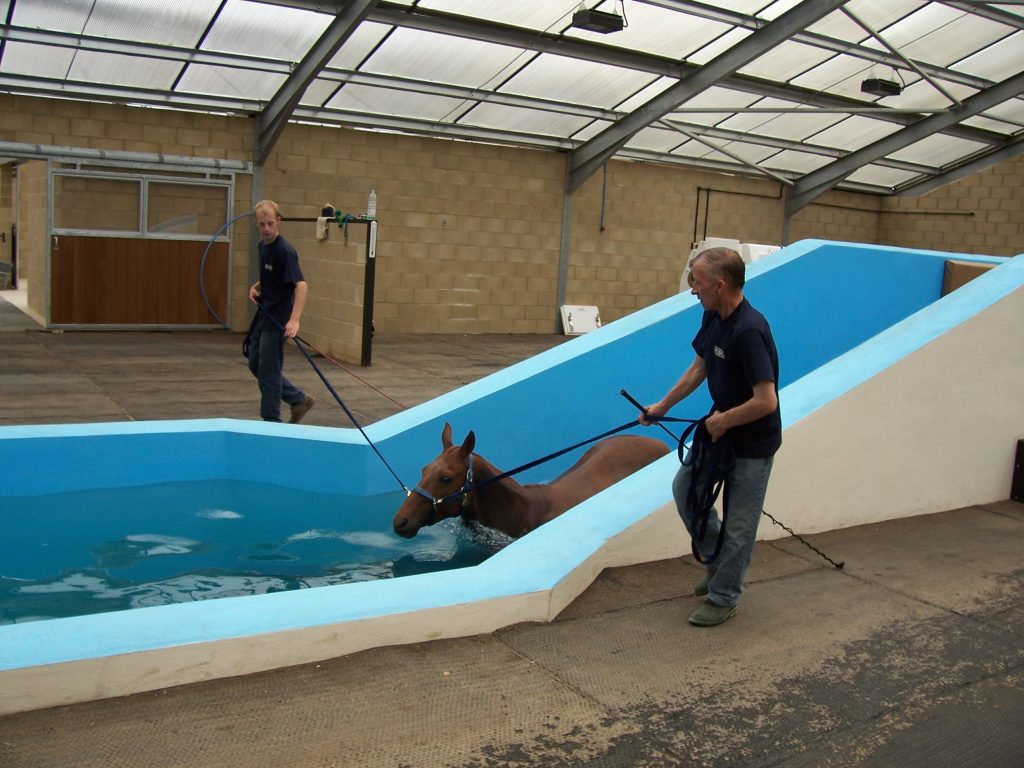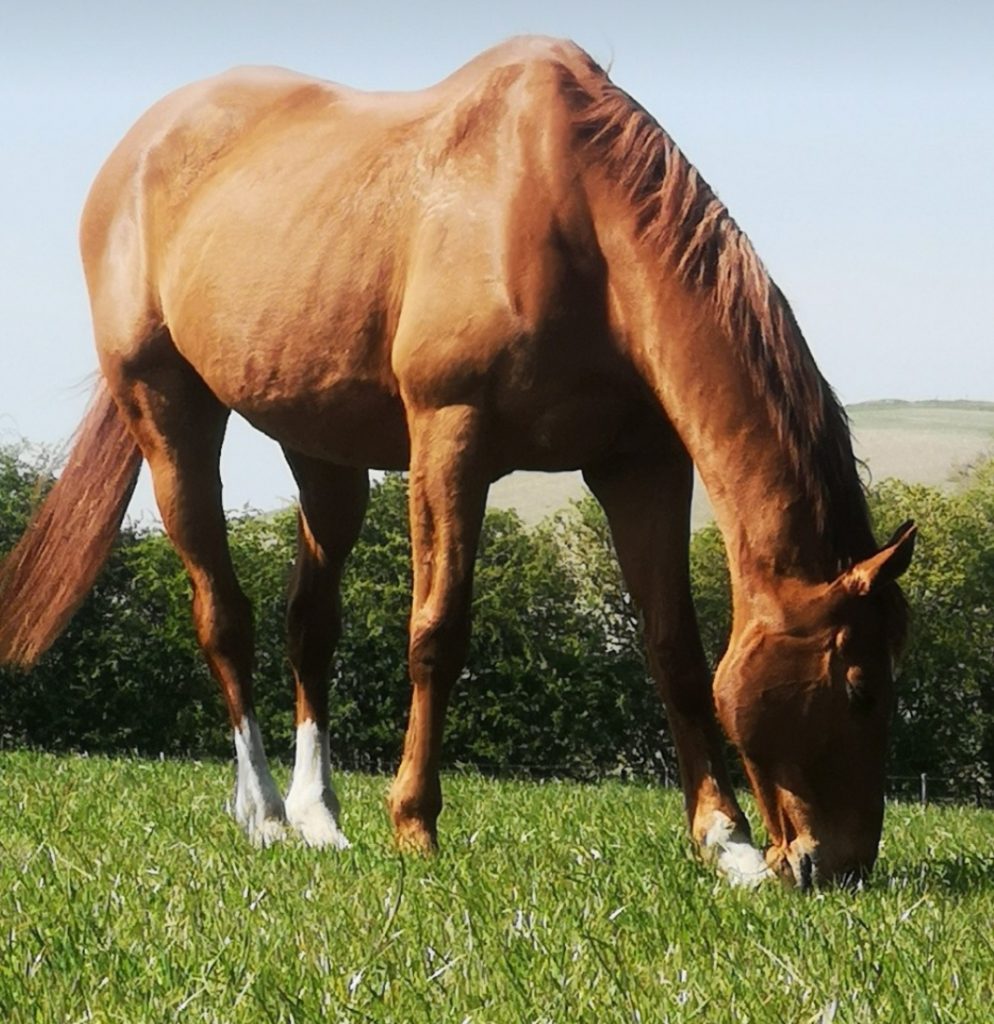
Living and working with horses exposes us to a vast number of opinions and theories. Some are based on scientific research but the majority are the result of experience, either personal or second-hand.
Theories come and go about the ‘best’ way to care for, feed, exercise and improve the horse’s health. Over time some theories gain general acceptance by the majority, others are overruled, usually because a ‘better’ theory is devised.
The opinion, ‘you should never swim a horse with breathing problems’ is a great example of a theory that has gained acceptance by a lot of veterinarians and horsemen, although there are probably almost as many who disagree !
Although this is a controversial topic I am going to dive in here and say that, based on my own experience of swimming many hundreds of racehorses over a few decades, I also disagree.
What is a ‘breathing problem’ ? Difficulty breathing, making a whistle or roaring sound when exercising, bleeding?
What causes a breathing problem ? A multitude of possibilities in both the throat area (upper respiratory tract) and in the lungs.
There are over 30 different conditions (and about 20 different procedures to deal with them) found in the throat, that can affect the horse’s breathing.
In addition, horses’ lungs are susceptible to allergies, viruses, bacterial infections, EIPH and many other issues.
It is believed that more than 30% of horses who suffer from breathing problems do not show any outward signs, such as whistling or roaring and often no abnormalities are found during endoscopic examination. They may not be performing that well at the final run-in during a race or a workout but this could be related to many reasons other than and including a respiratory issue.
So, based on the theory of ‘not swimming horses with breathing problems’, we should not swim racehorses at all!
But here is the problem I have with this, I have been swimming racehorses that have either suspected or confirmed wind problems with no difficulty at all for decades.
Here is an example of one of them. Zaffamore (by the US sire Zaffaran) bred in Ireland born 1996, was always destined to be a Steeplechaser. He began his racing career in 2000. In 2002 he began Steeplechasing.
Here is a video of Zaffamore swimming 12 lengths of a 135 ft pool.
Here are some quotes (Racing Post) about Zaffamore from his renown British trainer, Henrietta Knight.
17Jan04 Kempton (20.5Gd, RPR 132)
Following his win at Kempton Park (Jan 04) :
‘I told everyone he wouldn’t win because he has had major problems with his wind but Jim decided to ride him differently and saved him for a late finish. He’s the biggest horse in the yard but he makes terrible noises and has had operations’. – Henrietta Knight
22Dec04 Ludlow (24GS, RPR 133)
Following his win at Ludlow (Dec 04) :
‘I gave the owner four reasons before the race why he could not win. Firstly he had top weight, secondly, the ground would be too soft, thirdly, he’s got wind problems and finally three miles would be too far for him. Having given those reasons he promptly goes and wins!’ – Henrietta Knight
18May06 Ludlow (25.5Gd, RPR 111)
Following his win at Ludlow (May 06)
‘This horse has been a wonderful servant as he has won six times despite having breathing problems. His wind was so bad again that he had to have another operation this winter and had his first race since at Wincanton the other day and ran well so we were hopeful this evening’ – Henrietta Knight, trainer
Zaffamore is now nearly 25 years old. Enjoying his life outside racing with a lovely couple, Duncan and Caroline, in England, and still behaving like a 6 year old Thoroughbred racehorse on occasions. He is ridden out regularly.

Very little research has been done into the effect of swimming on horses’ respiratory systems. In one recent study carried out in 2019 by BEVA (British Equine Veterinary Association) there is a point that was made in the conclusion which you may find interesting :
‘Horses experienced complete URT (Upper Respiratory Tract)
collapse associated with post inspiratory apnoea when swimming. The reason for this is unknown but may be to aid buoyancy or associated with the mammalian dive response – a survival reflex to preserve oxygen stores and prevent water entering the lungs’.
Here is a link to the general article here
My support for swimming horses with or without breathing problems is subject to certain conditions.
- I am not a fan of round pools, straight pools are much better for rehab and fitness training, they are also safer.
- If you are using a straight pool, swim the horse in one direction, exit the pool, walk the horse back to the entrance and swim another length, repeat. This enables the handlers to check the horse’s breathing is not labored and the horse is relaxed between lengths.
- Make sure the people handling your horse are experienced with swimming and understand it is important to introduce the horse to swimming gradually.
- Speak to your veterinarian before swimming your horse following any type of surgery.
Article by Liz Newman Co-founder and CEO at www.horse-homes.com



